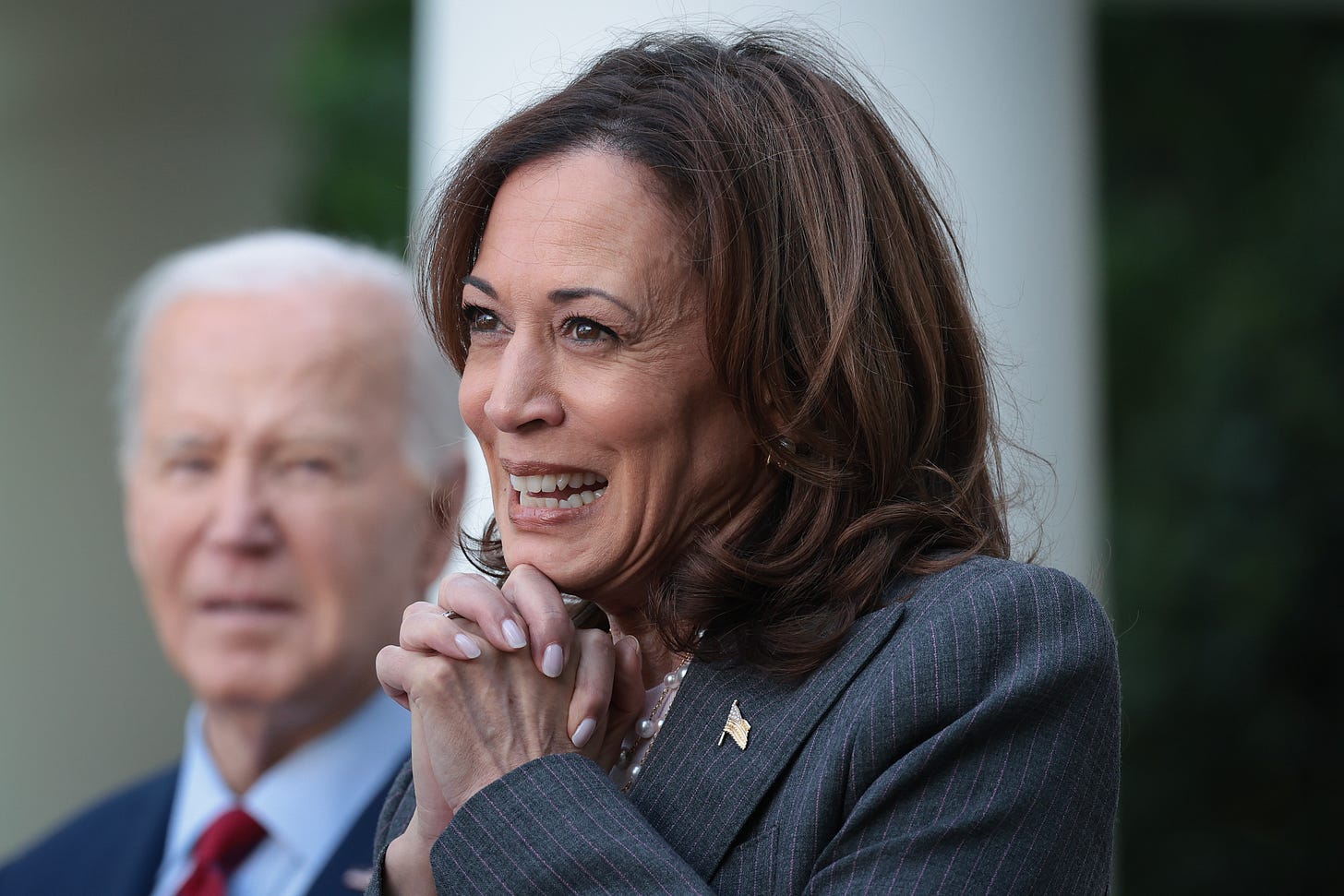Kamala Harris's Rise Refutes An Influential Democratic Theory Of Politics
A revisionist (and correct) retelling of Joe Biden's rise to the presidency, and political collapse.
Kamala Harris launched her campaign for the presidency three weeks ago, and she’s already inspired millions of Americans to see the world differently.
Most central to her task, she’s convinced millions of Americans who couldn’t see themselves voting for Joe Biden’s re-election to give the Democratic Party a second look. In doing so, she transformed the race from one Democrats were on track to lose to one that they’re on track to win.
The New York Times-Siena poll, which had been nightmare fuel for Democrats throughout Biden’s candidacy, now shows Harris with a significant lead (and majority support) in the blue-wall swing states of Michigan, Pennsylvania, and Wisconsin. And if you put much stock in crosstabs (which arguably you should not) the data suggests she’s accomplished this in a way that will improve the efficiency of the Democratic coalition, reducing the pro-Republican bias of the Electoral College. Harris is running ahead of Biden’s 2020 performance with white voters of all education levels, including non-college whites.
But to me the most interesting thing isn’t her surge in head-to-head surveys, or even the dramatic spike in her approval polling. It’s that her candidacy, all on its own, has driven a large correction in economic sentiment.
American confidence in the economy, which dipped after Biden’s fatally damaging debate performance, shot up at a record-breaking pace over the past two weeks. According to Financial Times survey data, switching Biden out for Harris was all it took to persuade voters that Democrats will be better stewards of the economy than Republicans. And she has room to grow: The entire effect was driven by so-called “double-haters”—voters who disliked both Trump and Biden—coming off the “neither” sidelines to say they trust Harris more than Trump. Trump’s flat numbers suggest basically nobody has given him a second look since Harris took over for Biden—she isn’t scaring anyone away, she’s drawing everyone in her direction.
Importantly, though, she accomplished this feat of influence over public opinion without changing anything material about the world. Economic conditions didn’t abruptly improve over the past month (if anything, they have deteriorated). The Biden-Harris administration hasn’t implemented any major new economic policies this summer. Harris hasn’t yet unveiled her policy agenda, which might at least in theory persuade some voters that, on economic matters, Harris > Trump > Biden.
What we can now see clearly is that economic sentiment, to some important extent, forms downstream of political optimism, which in turn is a function of mass psychology. Many voters who had lost confidence in Biden are suddenly enthused to see a younger Democrat campaign vigorously for president, and be rewarded for it, however reluctantly, with positive headlines. These voters are in turn also feeling better about the economy.
This provides exceptionally valuable information about how public opinion takes shape; it should also prompt us to rethink the entire story of Biden’s rise and fall.



